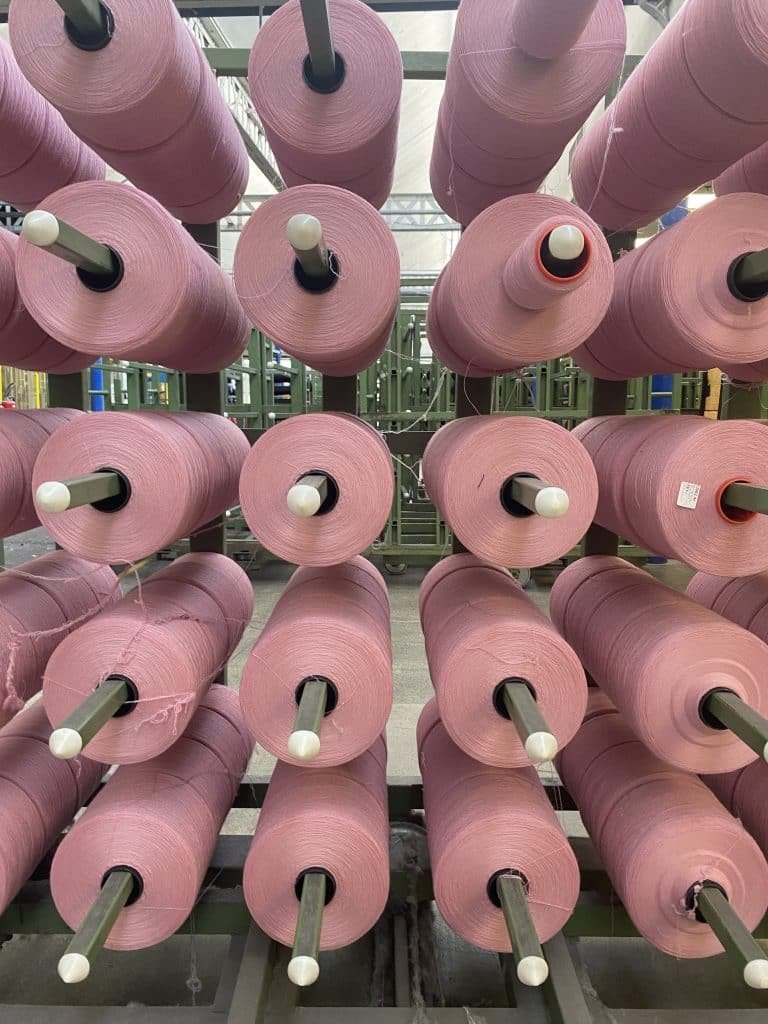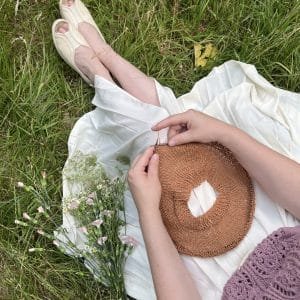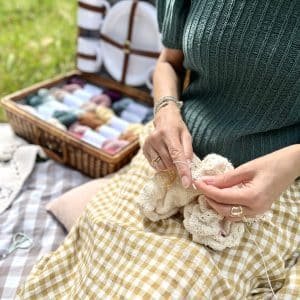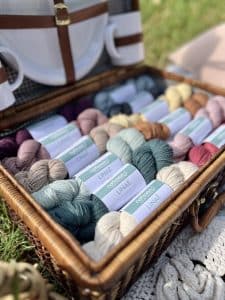welcome to Natissea, the world of ecological, plant-based and Made in France knitting! I'll tell you a little more about me, the brand's values and the incredible properties of these fibers!
Who am I ?
My name is Mathilde, I have been passionate about knitting since childhood and a few years ago I set myself a challenge: Create an ecological and plant-based knitting yarn company made from local fibers! Starting from a personal need to knit healthier, I realized that I was not the only one looking for alternatives to synthetic or animal fibers, most of which come from very far away. For me, one of the advantages of DIY is being able to choose clean, good quality materials to make personalized and sustainable clothing while minimizing my impact on the planet.
Thanks to my studies in fashion design and my experience as a project manager in one of the largest professional textile fairs in Paris, I was already aware of this industry and I had already heard about the wonderful properties of hemp and linen. So I looked for the closest producers, the healthiest fibers, and the way to offer the most beautiful and ecological yarns possible. It was not easy because a few years ago the French sectors had practically disappeared but little by little, through perseverance, patience and thanks to your support, I continue to develop and improve the yarns offered.
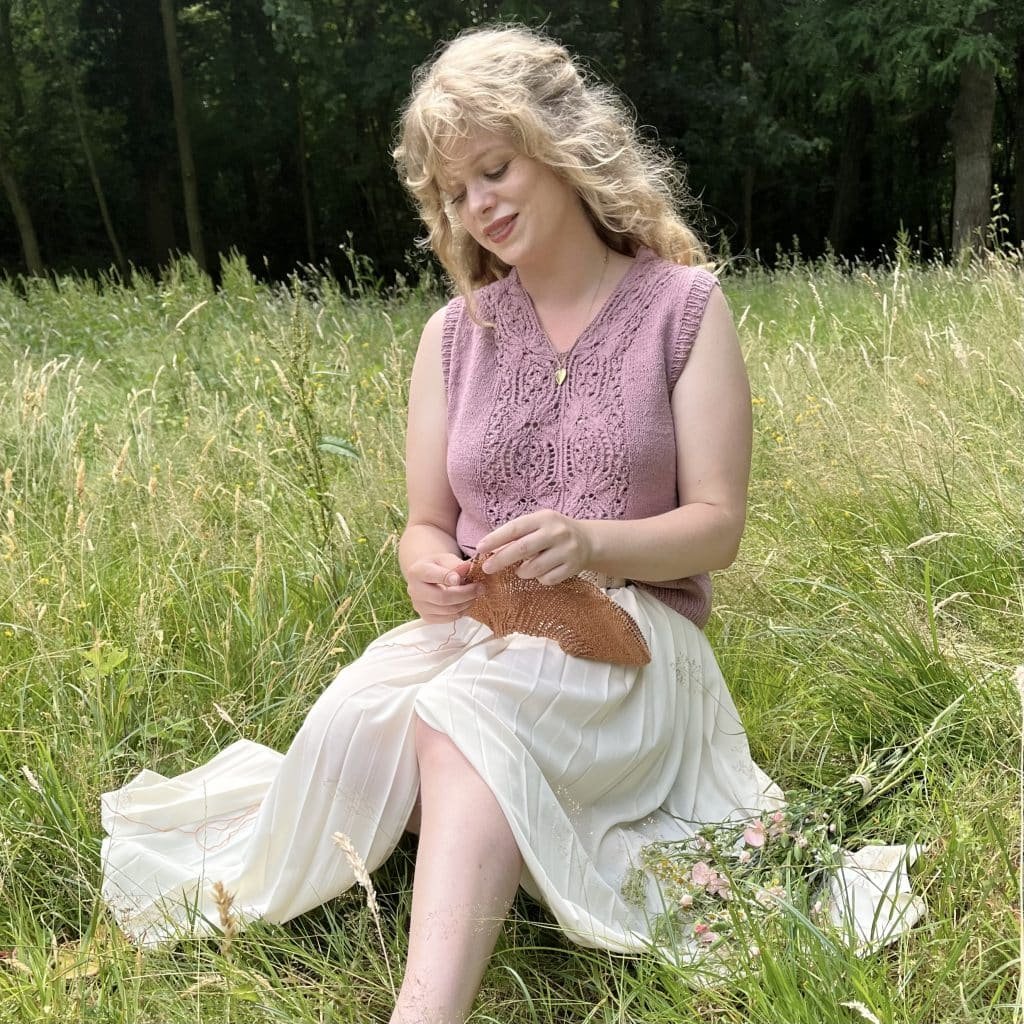
A committed brand of knitting yarns
Why plant-based yarns? I'm often asked this question, and there are several reasons. First of all, plant-based knitting yarn, whether organic or local, is necessarily more environmentally friendly. Then there's animal welfare, which is important to me, and finally, my growing curiosity about these fibers, which have simply been forgotten with the arrival of synthetic fibers. When we talk about ecology or animal welfare, there's an immediate feeling of unease. However, this isn't about saying what to do or not to do; I think that presenting the facts is important for making an informed purchase.
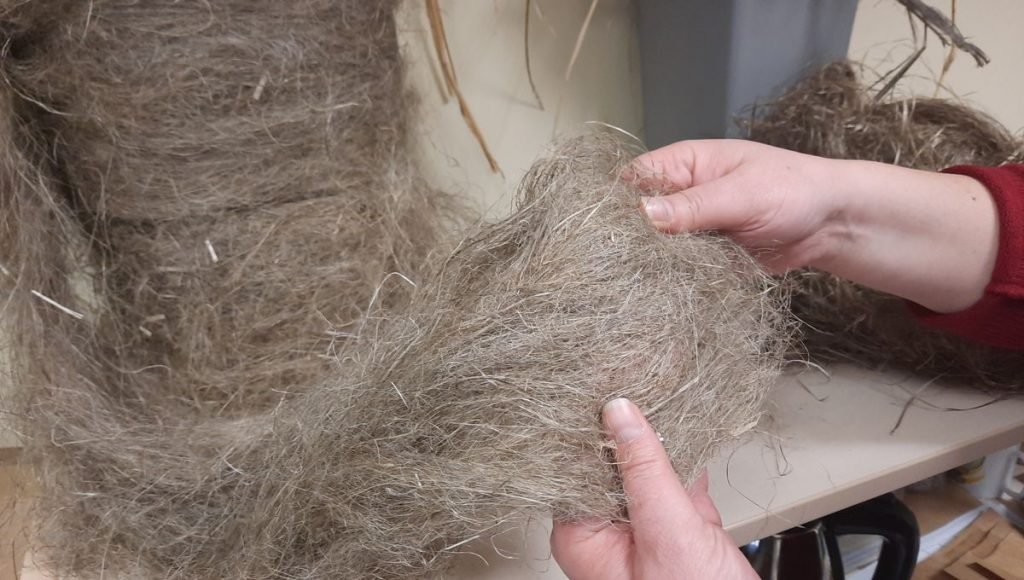
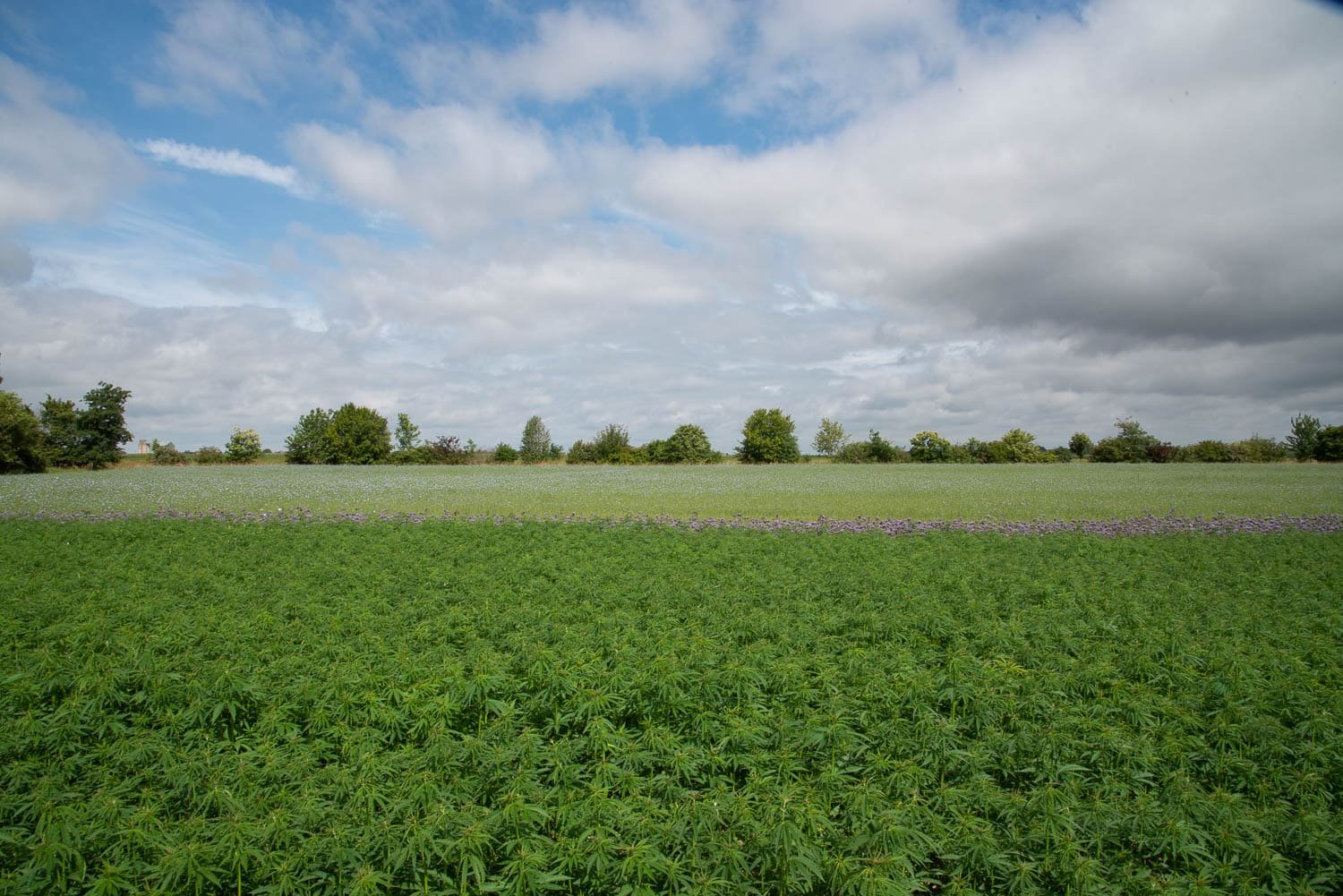
Synthetic yarn comes directly from petrochemical laboratories, so it's purely and simply plastic that pollutes even when recycled. As for animal fibers, their production requires at least four times more space than plant fibers. For a cultivated hemp field, you'll need one field to graze the animals and three other fields to grow their food. This multiplication also concerns the water used for the animals and growing their food. In an era where deforestation and water shortages are major issues, it's crucial to take them into account. Finally, I add to this transportation because the vast majority of knitting yarns come from Australia and New Zealand.
Which brings us to the animal condition in these countries. The equation is simple: there are more and more of us on this planet, and the demand for wool, whether for the fashion industry or knitting yarn, continues to grow. To meet this high demand, livestock farms are becoming gigantic, and the proximity of animals is increasing, creating real health problems and deplorable living conditions. Mulesing (removal of part of the perianal skin) is performed without anesthesia to limit fly larvae infestation, and the wool from these animals will require more chemicals to be disinfected.
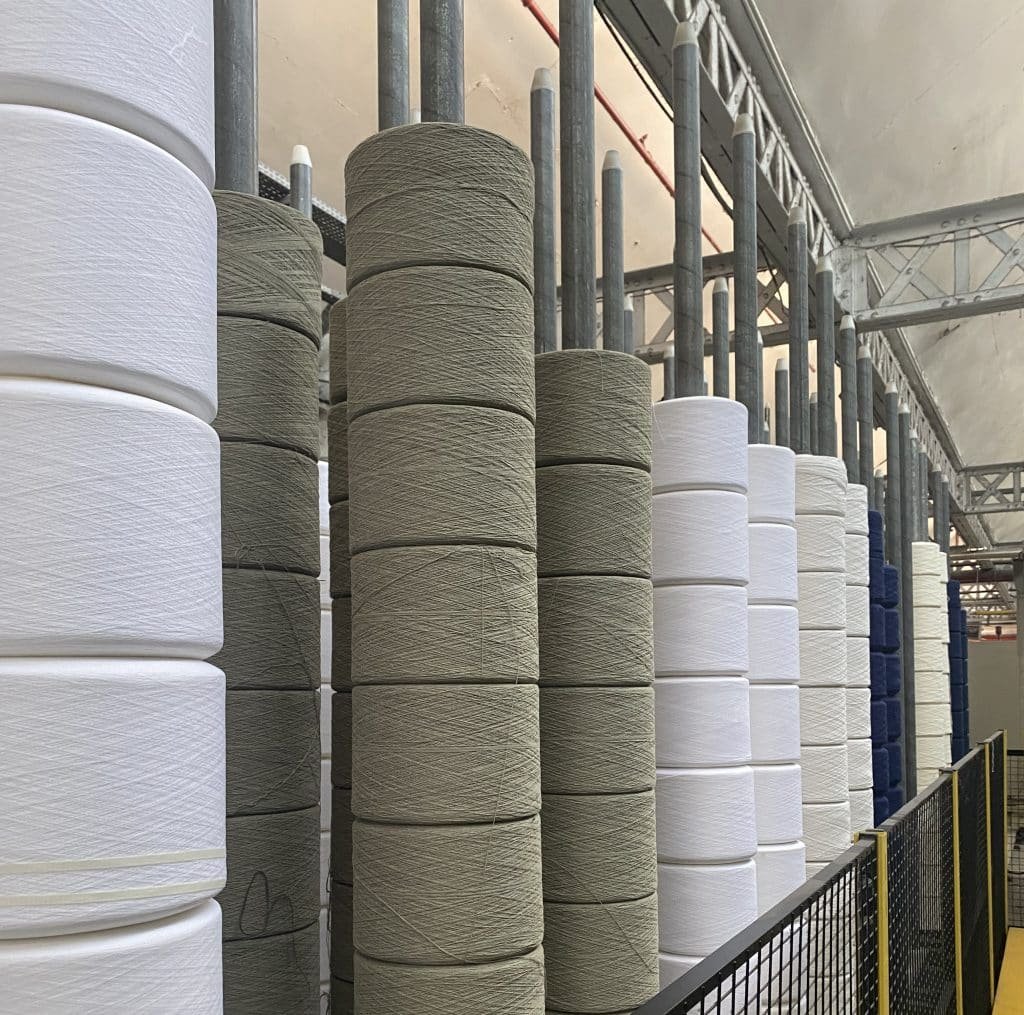
It's not necessarily about completely stopping synthetic or animal fibers, every little helps, you have to find your personal balance and the offer of plant and local yarns then allows you to diversify the materials that you can use. As in food, in knitting you can be vegan, vegetarian or flexitarian!
The important thing is to move forward at your own pace, without frustration. Limiting our consumption and making our lives greener, even partially, makes a big difference on a global scale. So I chose to focus on plant-based fibers because they are a very interesting alternative and they never cease to surprise us! I am also delighted to see that there are more and more brands offering local wool from farms where animal welfare is respected.
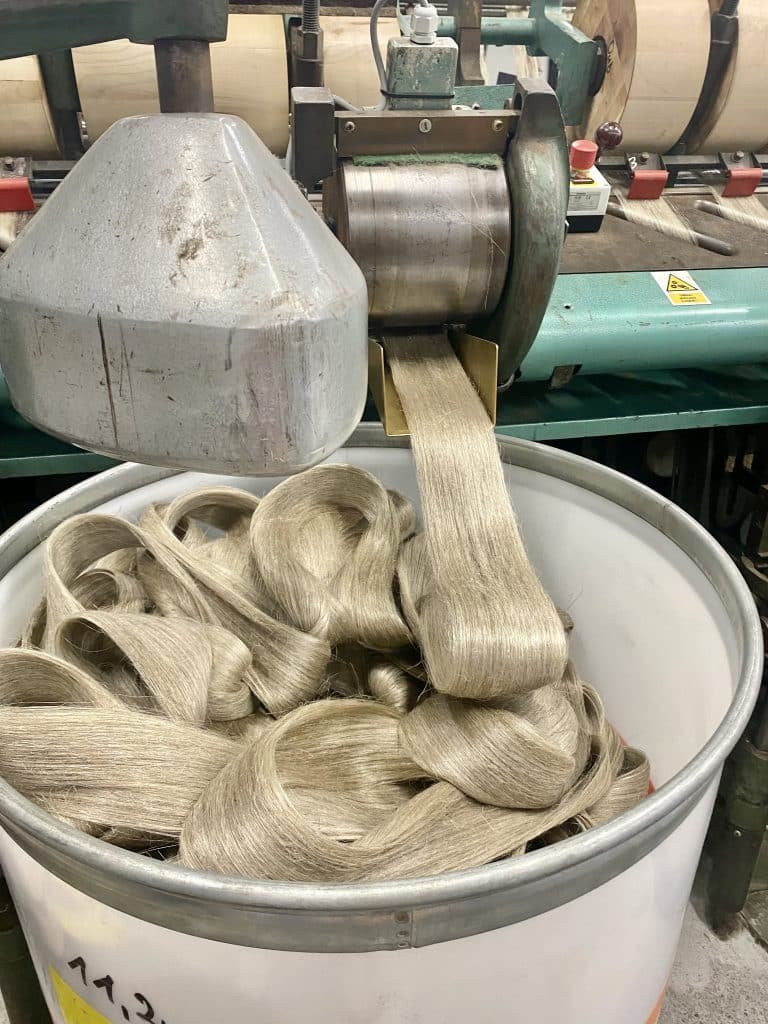
Hemp and linen for knitting
In addition to their ecological and local cultivation, these fibers offer all the natural properties! These thermoregulating materials will insulate your body temperature at 37 degrees Celsius from outside temperatures, whether hot or cold. Hemp is also used to insulate homes! Hemp yarn is also antiperspirant, ultra-resistant, antibacterial, antifungal, and hypoallergenic.
When it comes to knitting, plant-based yarns offer a wealth of creative possibilities. It takes a few rows to get used to the fiber's inelasticity, adjust your tension, and it will knit like a traditional knitting yarn. Since plant-based fibers are slightly denser than wool, it's best to refer to a pattern's yardage rather than its weight. Aside from that, most patterns originally knitted with wool or synthetic yarn convert very well to plant-based yarn.
The sons Natissea are dyed, twisted and packaged in France and are GOTS certified. All textile sectors, whether they concern cultivation, spinning or dyeing, are gradually being reintegrated into France. This requires a lot of investment from companies because the government hardly subsidizes the linen and textile hemp sectors. Thanks to increasingly engaged consumers and the various players in this sector who are coming together in the form of associations, things are moving. I am monitoring this very closely to be able to develop the ranges of knitting yarns Natissea !
